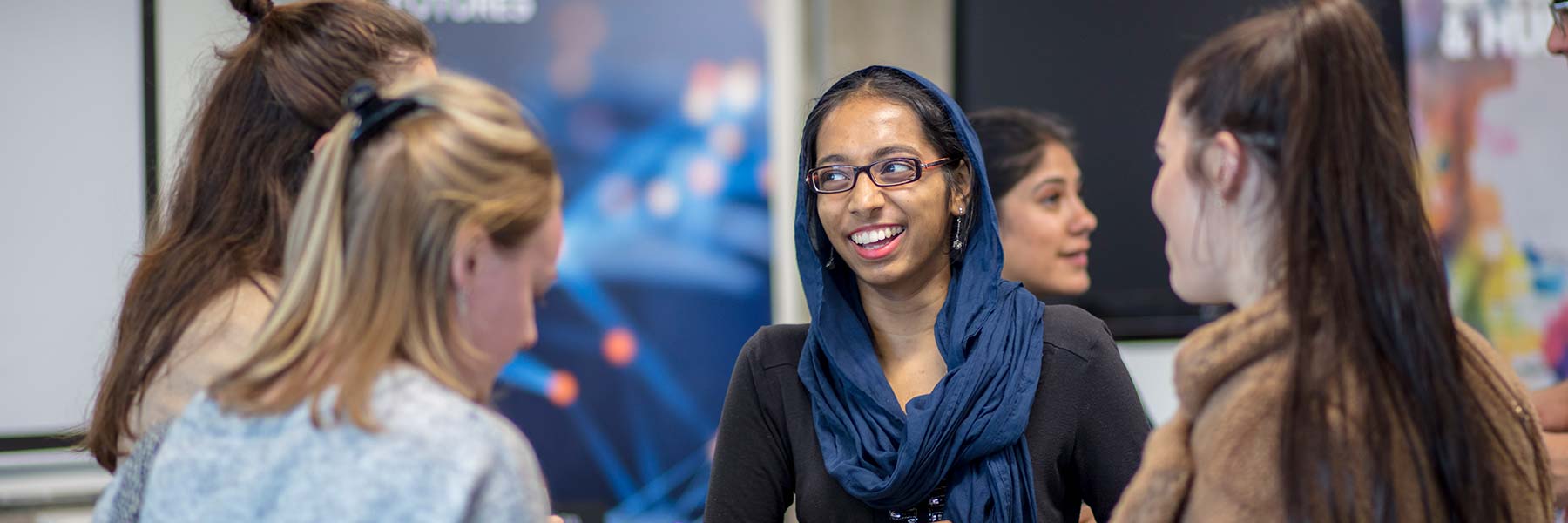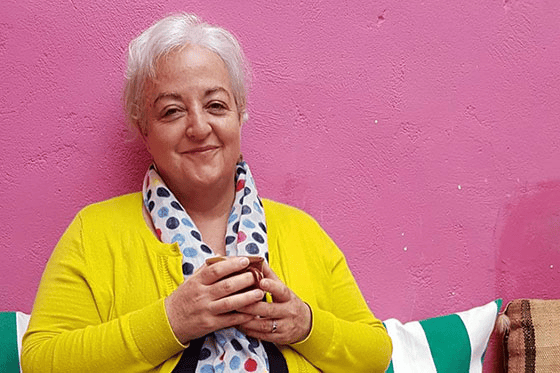
MA International Relations: Security and Development
Delve into specific debates about global security, trade policy, development aid and conflict resolution, gaining a systematic and critical understanding of the discourse of development issues.
Course details
This course is not running in September 2023. Future start dates are to be confirmed.
Delivery
online, part-time
Duration
2 years
Total fees
£8,300 (flexible payments available)
Please note that fees are reviewed on an annual basis. Fees shown are the most up to date but still subject to change in exceptional circumstances.
Course overview
Global power structures and developmental politics are in a state of flux after much political and economic disarray. In this course, you’ll acquire a wider knowledge of the fundamental theories of international relations and international debates. You’ll also develop your capacity to apply critical evaluation and reasoning to policy-making in security and development.
Hear from Course Leader Dr Patrick Holden as he discusses his background, the specific areas the course covers, and progression opportunities:
Want to watch the full recording? Register to gain access.
Read the video transcript on this page.
This course will provide you with the ability to analyse thematic and institutional case studies of world order and global governance. It will arm you with new ways of analysing the practice of security and developmental politics from a global perspective. We’ll take a more problem-focused approach with an emphasis on key subfields of international relations. Together, we’ll analyse these subfields intensely, so that you can go on to practice application in professional scenarios.
What you’ll learn
Our MA International Relations: Security and Development online programme takes a dynamic, problem-based approach to teaching and assessment.
On this course, you will:
- develop an advanced understanding and knowledge of the significance of the theories and concerns of international relations, informed by global scholarship
- gain an in-depth and systematic understanding of the discourse and practice of security and development issues in International Relations
- build on your ability to apply analysis and critical evaluation to policy-making processes in global security and development
- grow your competence in using methodologies and techniques both for research and professional environments
- develop a capacity for both independent research and collaborative efforts.
Why study an MA in International Relations?
We live in an era of dynamic global change. An International Relations degree will give you the in-depth knowledge and skills you need to navigate and critically analyse these changes and developments. Here are 5 reasons to study an MA.
Module overview
This module will examine theories to questions of world order and global governance in relation to contemporary international relations. You’ll gain a comprehensive understanding of the different forms of global governance, how they relate to global power structures and the interstate system, as well as gaining the capacity to analyse thematic and institutional case studies of global governance in areas such as development and climate change.
The broadening security agenda of the 21st century has brought with it a large number of issues. This module aims to analyse those security challenges. Where does responsibility lie? And what should be prioritised? You’ll be presented with the most effective methods for identifying risks and threats, and be encouraged to develop your own critical thinking and moral judgement about how security is practised.
This module will examine the key theories pertaining to politics of state and international institutions. We’ll also cover how trade policy works and how it’s linked to development.
You’ll gain a comprehensive knowledge of the key economic instruments used by states to promote their economic, social and political interests. You’ll also learn how to access key resources on trade policy and on development aid.
This module will present the study of International Relations in key global regions of strategic importance such as the Middle East, Europe and East Asia. We’ll provide you with the tools to develop your capacity to critically analyse the politics and international relations of the regions in question, while understanding the historical context of state building, regional rivalries, and specific conflicts.
Finally, you’ll have the opportunity to demonstrate your research skills through your dissertation. While developing your dissertation, you’ll be required to demonstrate your ability to independently investigate a particular issue in global security and development, and apply analysis and evaluation skills.
Are you interested?
Entry requirements
Other qualifications accompanied by substantial experience in an appropriate field may also be considered. Non-standard applications will be considered on a case by case basis.
You should have a second-class honours UK/EU or equivalent degree or postgraduate diploma in a relevant subject area or an equivalent professional qualification of the CNAA in Politics/International Relations.
Relevant subject areas include (but are not limited to) the following:
- development studies, economics, public policy, history, geography
- cultural studies, law, philosophy, sociology, psychology, anthropology
- business studies, modern languages, English literature, media studies and communications
You must also demonstrate that you can work with and understand complex language. If English is not your first language or you have limited experience of studying in English, you should be able to demonstrate English language skills equivalent to a minimum level of IELTS 6.5 overall (with a level of at least 5.5 in all components) or TOEFL written paper 600.
We recommend that all students have access to their own technology to access their programme including the right hardware (for example, a laptop), software and connectivity (for example, broadband).
As the online programme will be using the University of Plymouth’s digital learning environment, applicants will be made aware of the technical and connectivity requirements, which are outlined here.
Careers and opportunities
By participating in this programme, you’ll gain the knowledge and skills to pursue a career in this growing area of professional activity.
With so much opportunity to practise critical analysis and thinking, research, and application of these skills to real life case studies, you’ll graduate equipped with a diverse portfolio of techniques that give you an intellectual edge.
On successful completion of the course, you’ll have developed the ethical and integrative attitudes necessary to be a professional within this field. You may even be inspired to embark on a PhD programme.
Our MA student cohort is very diverse. Some go on to work in the military and the security sector while others go into the NGO world/third sector or radical politics. The traditional route is also to work in government or international organisations. Many will also work in business.
Dr. Patrick Holden, MA International Relations: Security and Development Course Leader.
How you’ll be assessed
You’ll be assessed based on your process of researching, crafting, and documenting your work through a variety of methods, including presentation and individual work, as well as the framed discussion of practical work.
Assessment methods will be tailored specifically to each module and inclusivity will be catered for so that no students are disadvantaged.
“Skills such as intercultural communication, critical thinking, and analytical/research capabilities are greatly prized in business and the subject knowledge is also relevant.”
Dr. Patrick Holden | MA International Relations: Security and Development Course Leader
How the online programme is delivered
Taking into account different time zones and our commitment to independent study, you’ll be tasked with managing your own schedule within the timeframes required.
During each module, you’ll have weekly contact with online tutors to support your academic development. This will be your opportunity to discuss your experiences and ensure the course is supporting your aspirations and reaching your expectations.
Learn more about life as an online student:
Academic team
.webp?width=560&height=373&name=Patrick%20Holden%20edited%20(1).webp)
Course Leader
Dr Patrick Holden
Dr. Patrick Holden’s research and teaching has focused on international political economy, the European Union in the world, international development policy, global governance, and regional integration.

Module Leader
Elizabeth Cobbett
Before entering academia, Elizabeth developed expertise and experience in political economy analysis, with practical experience in feminist and social movements, and grassroots communities, in Canada and Mozambique.
Catch up with Plym
See allThe danger of unqualified expertise on Iran in Washington
Uncover the risks of unqualified expertise on Iran in Washington and its impact on foreign policy...
Saudi-Iranian agreement: A temporary truce, not a lasting peace
Dive into the recent Saudi-Iranian agreement brokered by China and uncover why it may be a...
Why International Relations is more relevant than ever
Why do businesses need international relations expertise? The University of Plymouth's Dr Patrick...
Start something big today.
We’ll get in touch to discuss your area of interest and answer any questions. Just fill in the details below:
